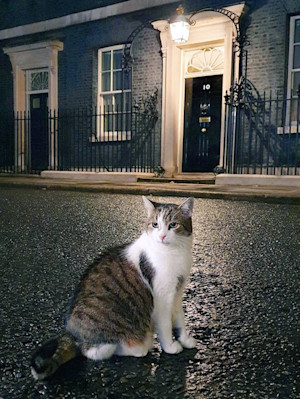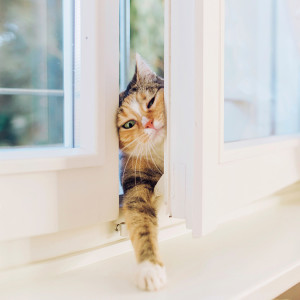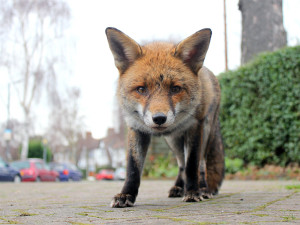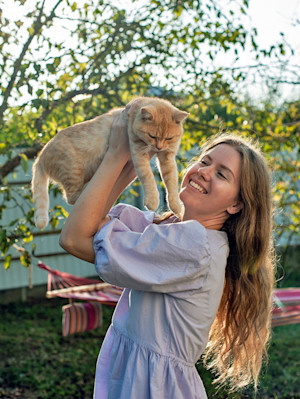Welcome to Cat Island: Where Feline Residents Outnumber Humans 20 to 1
For cat lovers, it’s nothing short of paradise
If you’ve ever dreamed of being surrounded by cats – and let’s be honest, who hasn’t? – Japan’s Aoshima Island, affectionately known as ‘Cat Island’, should be at the top of your travel bucket list.
Located in Ehime Prefecture, the tiny island is currently home to a population of roughly 120-130 cats, dramatically outnumbering its few human residents. In fact, the ratio of cats to humansopens in new tab is reported to have been as high as 36:1, with only five people left living there as of 2023opens in new tab. Yep, five people.
Get (totally free) deals for food, treats, accessories, tech and way more pet parenting must-haves.
The cats weren’t originally invited to Aoshima for the Instagram-worthy selfies they now provide to visitors. Back in the 1940s, they were introduced to the island to help control the rodent population aboard the fishing boats. The local fishermen probably thought they’d solved their mouse problem, but little did they know, they were kickstarting a feline population boom.
With no natural predators and plenty of food, the cats flourished. And as the island's human population dwindled – once numbering in the hundreds, now reduced to a handful – the cats continued to multiply, happily sunning themselves on rooftops, lounging in doorways and strutting along the quiet streets like they own the place. Because, in reality, they kind of do.
Visiting Cat Island is a bit like stepping into a real-life version of… well… Cats. Arriving via a 30-minute ferry – there are no bridges to the remote island – guests are greeted by curious, semi-feral cats of every size and shade. The felines aren’t shy either; they’re accustomed to tourists bringing treats and attentionopens in new tab. There’s even a designated feeding area near the community centre to keep the chaos in check.
Aoshima is not the only ‘Cat Island’ in Japan; several other islands across the country such as Tashirojima, Enoshima and Sanagijima boast similarly high feline populations, and each have their own charm and quirks.
While it may sound idyllic, this tight-knit cat community is far from perfect. As researchers have pointed outopens in new tab, large populations of feral cats can sometimes struggle with issues such as disease and food scarcity, particularly during the leaner winter months when tourists and their snacks dwindle.
In the early years of its rise to fame, Aoshima Island saw an influx of tourists eager to experience the famed Cat Island, sometimes overwhelming the local residents. Ferries were packed with visitors, and the cats thrived on the attention and extra food that came their way.
However, as the novelty wore off and tourist numbers began to diminish, so too did the treats and pets that the cats had become accustomed to. Coupled with the island's shrinking human population, the cats now face a quieter existence, with fewer people to provide the daily affection and food they once enjoyed in abundance. This decline has raised concerns about their long-term well-being, as fewer resources are available to sustain the thriving feline community.
Enter Cat Mama, a dedicated local who tirelessly cares for the cats, feeding them, monitoring their health and keeping the island’s spirit alive. She’s an unsung hero, adored by her feline charges and followed by an army of cats wherever she goes. A kitty Pied Piper, if you will.
However, the situation isn’t entirely sustainable. In 2018, the Japanese government introduced a spaying and neutering programme to control the booming cat population and roughly 210 cats were sterilised.
With such a small human population and a lack of younger generations to take up the mantle, it’s uncertain who will care for the cats long-term. As an Aoshima Island insideropens in new tab wrote on X (formerly Twitter), there’s a real fear that the island’s beloved felines might “cross the Rainbow Bridge” in the coming years without proper support.
Local initiatives, along with government intervention, have helped curb the exponential growth of the cat population, but concerns about their future persist. The island’s ageing human residents are unlikely to remain caretakers forever, and with no new generations of residents stepping in, the fate of these cats hangs in the balance.
Still, for the time being, Aoshima Island remains a haven for its feline inhabitants and the cats seem blissfully unaware of any uncertainties. Whether the future holds a sustainable plan for the island’s feline residents or not, one thing is certain: Cat Island will remain a symbol of our fascination with cats and the lengths some people will go to protect them.







